Sustainable Scraps: Turning Food Into Fertiliser
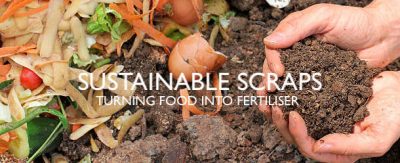
Hi everyone!
Today’s blog post will show you how easy it is to be sustainable in your everyday life. Specifically, through the opportunity of turning your food scraps into nutritious fertiliser for your gardens.
The inspiration for this post came from the COMU3130 course I am currently taking at university. Throughout the course we were asked to contribute sustainability related posts to a Facebook page titled iSustain. I wrote a number of gardening and compost related posts on the page, each of which caused quite a positive reaction. A few people even said things like “Hey I never knew that, I will definitely try it out next time,” and some even went as far as to create subsequent posts where they could be seen utilising these tips.
When curating my iSustain posts I did some research and found a plethora of everyday food scraps which can be re-used instead of being thrown out. While my family have always been very involved with gardening, many of the items actually surprised them. This surprised me and made me wonder if I could use my research to help others realise that opportunities to be sustainable may be right in their trash cans.
In saying all this, here are 6 food scraps that you probably didn’t know you could re-use:
Eggshells
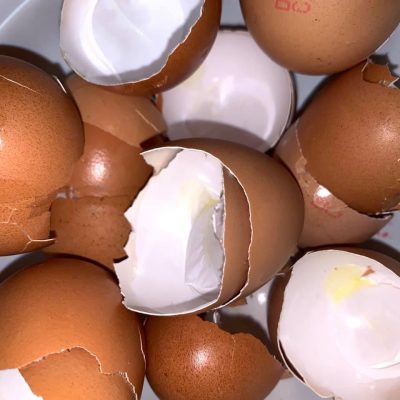
I don’t know about yours, but my family goes through quite a number of eggshells each week. In saying this, did you know that the average person consumes around 150 to 200 eggs per year? Think about all those egg shells that are thrown out…
On a positive note, did you know that these eggshells can actually be ground up and tilled into your garden. While my family always did this, they did not know that it actually helps moderate soil acidity while also providing tons of extra calcium and nutrients for your plants. Plants such as tomatoes, peppers and eggplants especially love this!
It is important to note that it may take the shells a few months to break down and be absorbed by your plants. But there is also a positive to this as their presence is said to turn away pests such as snails and slugs.
Now that’s as eggstraordinary hack.
Tea leaves and coffee grounds
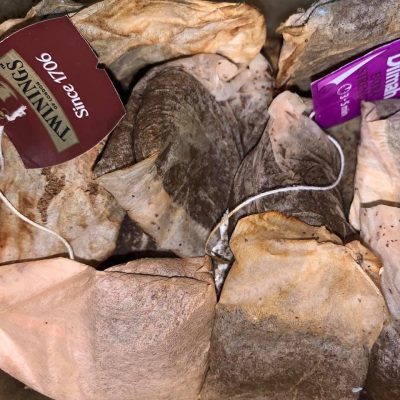
Another staple you will most likely find in almost every kitchen is tea and coffee. My household specifically, as my family seem to have it for breakfast, lunch and dinner if they can.
Utilising tea leaves and coffee ground within your garden can be very beneficial for your plants as tea leaves contain tannic acid and other nutrients, while coffee grounds contain nitrogen, potassium and phosphorus. All of which are natural fertilisers for the garden. While I knew that tea leaves and coffee grounds were quite nutritious for gardens, I did not know that they also assist with water retention and slowing down weed growth as well.
With regards to tea bags, it must be noted that if they are made of materials such as paper or cotton then they are compostable and can be buried fully. In contrast, if the teabags contain synthetic materials such as polypropylene they must be separated from the tea leaves inside before being used in your garden.
Fruit scraps
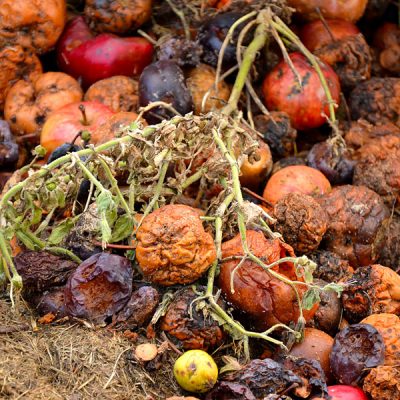
While it is quite well known, another food scrap that I wanted to include was fruit scraps. Despite its popularity, some do forget about it re-using their fruit scraps and skins. My family eats so much fruit on the regular that we produce quite a large amount of fruit scraps. Yet even my family sometimes forgets and ends up accidentally throwing them in the trash just because it is easier.
When collecting fruit scraps for your garden, some of the most beneficial are said to be banana and citrus peels. This is because banana peels are incredibly high in potassium and citrus peels contain great amounts of phosphorus, nitrogen and potassium. Along with all of these nutrients, incorporating them into your garden can also help them to protect against certain pests such as snails and slugs.
One of the main reasons why people do not like utilising fruit scraps is because they may take a while to decompose. But a little hack to make them compost faster it is to break them into small pieces (you can thank me later).
Bread
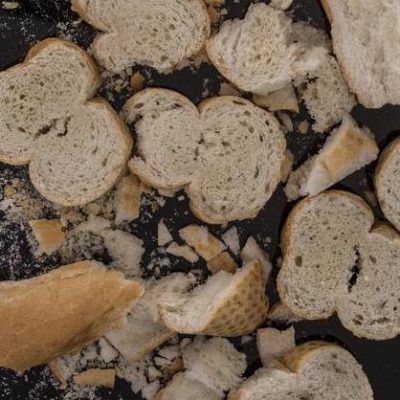
Alike my household, sometimes you cannot help it if someone prefers to cut the crust off their sandwiches or if bread goes bad before you get to eat it. To you this may be a sign to throw out the bread, but have you ever thought to use it in your garden instead? This never occurred for my family but now that we know that there is an alternative to throwing it out we will definitely try it out.
Through searching online, I found that the recommended way to prepare bread scraps for your garden is to dry out the bread in the oven, grind it in the blender and then mix or rake it into your soil. Doing this can provide nutrients, especially nitrogen, to your plants.
Infused water
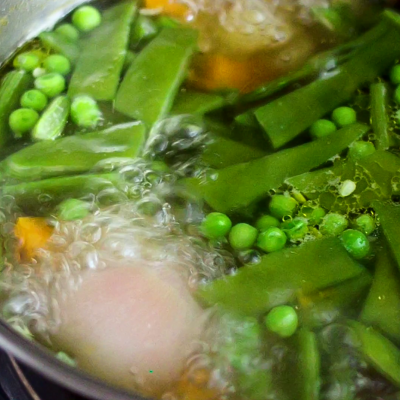
Water is one of the most prominent and used ingredients in the kitchen. It is used for a number of different things. This ranges from washing rice to boiling pasta or vegetables. If there are no additives in your boiled water next time you cook, instead of pouring it down the sink, think about giving it to your garden for a little nutritious boost.
Water that contains a lot of starch provides large amounts of minerals and vitamins. This includes the water used to boil potatoes, as they contain lots of potassium, magnesium and phosphor that is incredibly nourishing for your garden. Rice water is also known to have benefits for a range of different things, but many do not know that when used on your plant it can also be quite useful to deter pests such as flies, plant lice, flea beetle, aphids and various others.
Oats
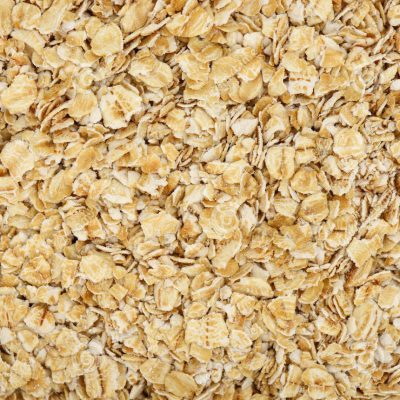
When researching what food scraps could be re-used, one of the more surprising items for my family and I was oats. While oats are not typically a food scrap as such, I do know instances wherein oats have been inedible and therefore discarded.
If used correctly and in moderation, raw oats are suggested to provide numerous benefits for your garden. While it is not scientifically proven, the benefits are said to include minerals such as phosphorus and iron.
When sprinkled sparingly around the stems of your plans, oats are also rumoured to be good at protecting your plants from pests such as slugs or snails. While they love oats, the oats will actually swell up inside of them and kill them. Additionally, it is also important to make sure that oats are used sparingly as too much can attract rodents and insects – something you definitely don’t want.
While I only listed a few food scraps that can be re-used as fertiliser, there are numerous other ones that exist. Regardless of whether you are avid on sustainability or a beginner, there is definitely something out there for everyone. I am very glad that COMU3130 and iSustain influenced me to do this research and find out things I’m sure not many thought about.
From our kitchen to yours, let’s all make the move towards sustainability together!
